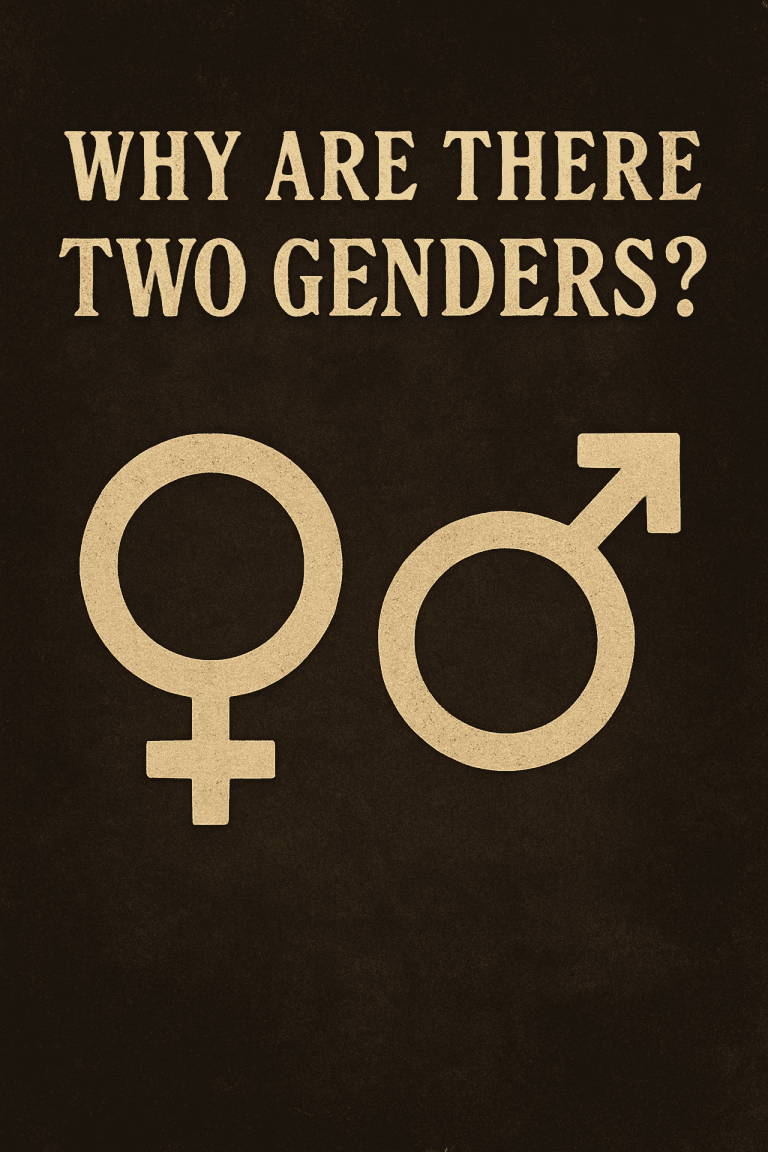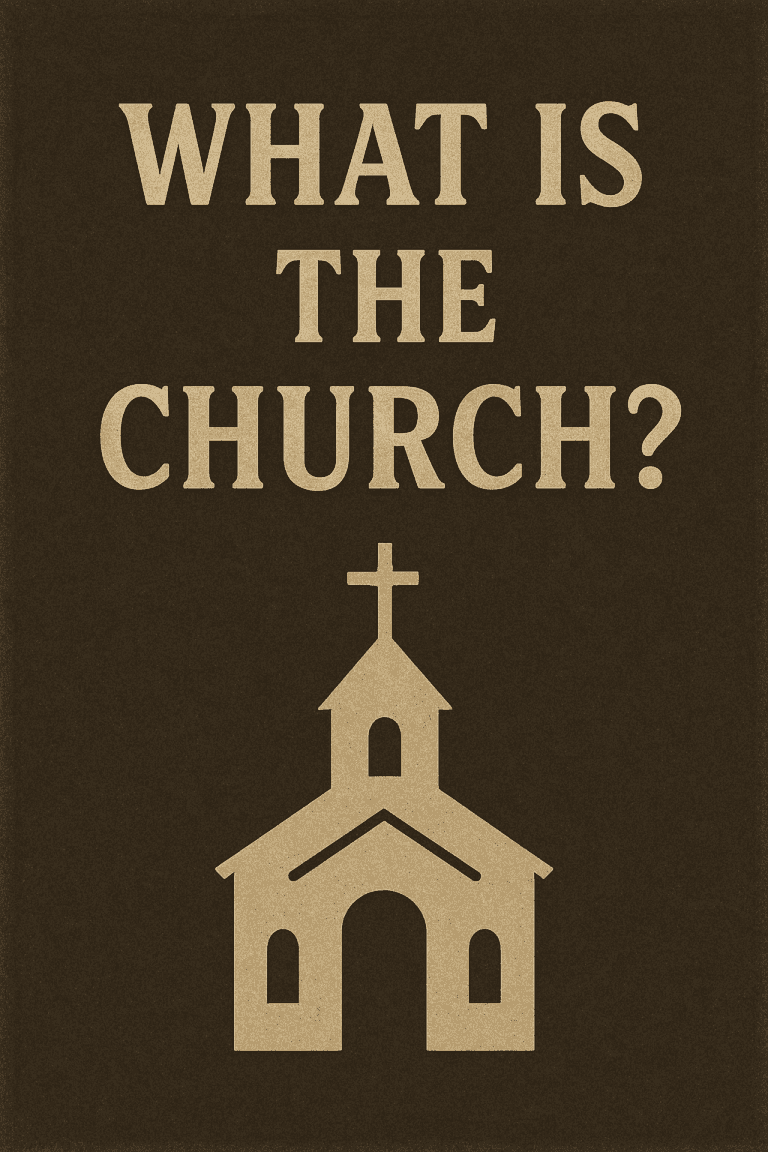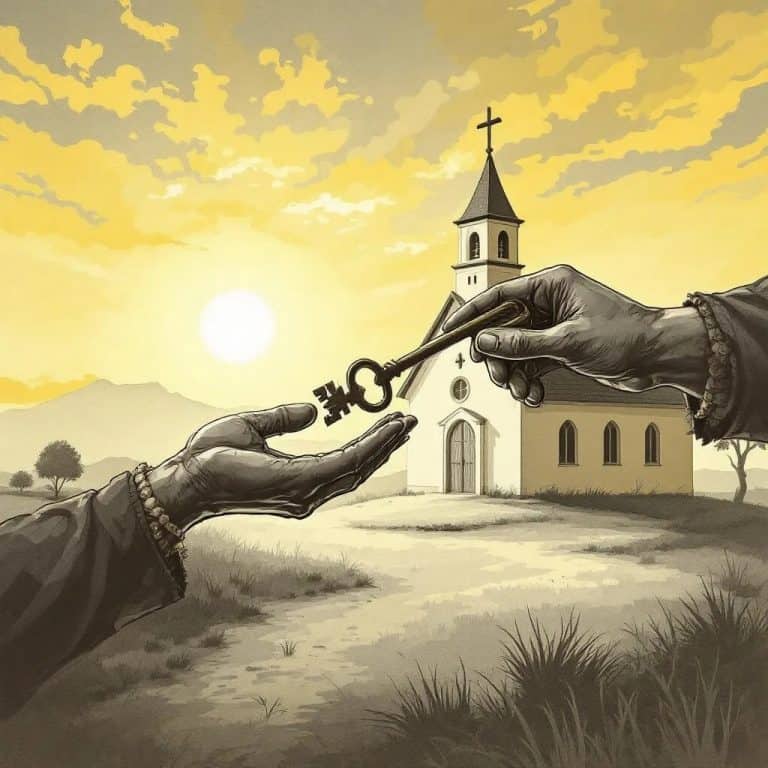Is the Bible True? A Clear Answer in an Age of Doubt
Is the Bible true? That question divides dinner tables, fuels online debates, and keeps doubters up at night.

Some ask with sincere hearts. Others ask to justify walking away. Still others ask as a smokescreen—hoping to dismiss God without having to deal with Him. But behind the question is something more than curiosity. There’s a soul at stake.
Because if the Bible is true, then you can’t stay neutral. You must either bow the knee to its Author or reject Him outright.
So let’s answer the question—not with slogans or sentiment—but with clarity, conviction, and Scripture. Because if the Bible is true, then God has spoken. And if God has spoken, then the one who hears must respond.
The Bible Doesn’t Whisper—It Declares
The Bible doesn’t offer spiritual suggestions. It doesn’t mumble from the margins of culture. It declares—without apology—that it is the very Word of God.
“All Scripture is breathed out by God,” Paul writes (2 Timothy 3:16). “The Word of God is living and active, sharper than any two-edged sword” (Hebrews 4:12). Jesus said, “Scripture cannot be broken” (John 10:35). This book doesn’t claim inspiration—it claims divine origin.
That’s offensive to some. But the Bible was never written to make people comfortable. It was written to reveal, rebuke, restore, and train (2 Timothy 3:16–17). It wasn’t designed to impress the academy. It was designed to call sinners to repentance and point them to the Savior.
So is the Bible true? Not in the way people often mean. It’s not just historically accurate—it’s divinely authoritative. It doesn’t simply inform. It convicts, commands, and comforts. No other book speaks like this one—because no other book lives like this one.
Evidence Isn’t the Foundation—But It Isn’t Absent
Christian faith is not blind. It rests on a God who reveals—and that includes evidence.
Archeology, manuscript consistency, fulfilled prophecy, eyewitness testimony—these support the Bible’s trustworthiness. The Dead Sea Scrolls confirm the accuracy of Old Testament transmission. The early New Testament documents outpace other ancient literature in sheer volume and dating.
But evidence is not the foundation—God’s revelation is.
As Jesus told the parable of the rich man and Lazarus, He made a stunning point:
“If they do not hear Moses and the Prophets, neither will they be convinced if someone should rise from the dead” (Luke 16:31).
In other words, the problem isn’t lack of proof—it’s lack of willingness to believe what’s already been said.
Is the Bible true? Those who ask often mean, “Can I verify every claim under a microscope?” But God doesn’t submit to microscopes. He reveals Himself through His Word. And those who hear it must decide whether they will humble themselves under it—or keep demanding signs on their own terms.
The Bible Rings True Because It Cuts True
You don’t need a PhD to recognize truth when it cuts you open.
The Bible doesn’t flatter. It doesn’t airbrush. It shows Noah drunk, David murdering, Peter denying, and Paul persecuting. It doesn’t make heroes out of men—it makes grace look necessary.
It describes the human heart with brutal clarity:
“Deceitful above all things and desperately sick” (Jeremiah 17:9).
And then it offers a Savior who redeems the worst.
Have you ever read a page of Scripture and felt like it read you instead?
That’s not normal literature. That’s living truth.
“For the word of God is living and active… discerning the thoughts and intentions of the heart” (Hebrews 4:12).
“Sanctify them in the truth; your word is truth” (John 17:17).
No other book confronts, convicts, comforts, and restores with such surgical precision.
We don’t just ask, “Is the Bible true?” We ask, “Why does it know me better than I know myself?” That’s not fiction. That’s revelation.
If the Bible Is True, Then Everything Changes
This isn’t about winning an argument. This is about eternity.
Jesus said,
“Heaven and earth will pass away, but my words will not pass away” (Matthew 24:35).
You can build your life on trending ideas or shifting emotions. But if the Bible is true, then every person who reads it is accountable to the God who breathed it out.
That means this question—is the Bible true?—is not just academic. It’s personal. It confronts every man, woman, and child with the authority of God. And it demands a response.
If it’s not true, discard it. But if it is—then turn. Repent. Believe. Let go of the cheap lies you’ve been feeding on and trust the God who gave His Word to lead you home.
What About Contradictions?
The most common objections aren’t always the strongest.
People point to differences in the Gospel accounts, translation variations, or perceived theological tension.
But these don’t dismantle Scripture. They reflect the nature of eyewitness reporting, linguistic nuance, and covenant development.
The Bible contains tension—not contradiction. It was written by multiple authors, in different styles, over centuries, yet with one voice and one story: God redeeming sinners through Christ.
If you’re truly curious about contradictions, study them with humility—not with cynicism. The deeper you dig with open eyes, the more consistent and compelling Scripture becomes.
The Truth Is a Person, Not Just a Page
In the end, Christianity is not built on a book—it’s built on a Person. But that Person affirmed the book.
Jesus Christ—the Word made flesh (John 1:1)—quoted the Old Testament, fulfilled its promises, and commissioned His apostles to write the New. He didn’t treat Scripture as optional. He treated it as binding truth from the Father.
You don’t just need to know, “Is the Bible true?” You need to know the One who fulfills every word written in it.
This isn’t about having all your questions answered. It’s about meeting the God who already has the answers—and who gave you His Word not to debate, but to deliver you.
The Bible Has Been Attacked—and Still Endures

Voltaire once predicted the Bible would be obsolete within a generation. He’s long gone. The Bible remains.
Governments have banned it. Skeptics have mocked it. Critics have tried to deconstruct it. But the Bible still speaks. It remains the most read, translated, and smuggled book in the world.
That endurance says something. No book survives this long, this fiercely, with this much fruit—unless it bears something divine.
And yes, the Bible was written by humans. But not merely by humans.
Scripture says,
“Men spoke from God as they were carried along by the Holy Spirit” (2 Peter 1:21).
“All Scripture is breathed out by God” (2 Timothy 3:16).
These weren’t cold dictations or wild imaginations. They were Spirit-guided revelations—written in history, preserved by providence, and pointing to Christ from beginning to end.
Is the Bible true? Look at the legacy.
Empires rise and fall. Philosophies come and go. But this Book continues to change hearts, restore marriages, break addictions, and call sinners to repentance.
It exposes the soul, exalts Christ, and endures every generation.
“The grass withers, the flower fades, but the word of our God will stand forever” (Isaiah 40:8).
Jesus echoed that in Matthew 24:35.
This Book doesn’t just endure—it endures with power.
So when you hold a Bible in your hand, you’re not holding a human invention. You’re holding the living Word of God—unchained, unbroken, and unstoppable.
Still Wrestling?
Then don’t stop. Keep asking. Keep reading. Keep praying.
But know this: the Bible doesn’t flinch under pressure. It’s not afraid of your questions. And it’s not waiting for your permission to be true.
The Word of God is living. And the One who gave it is patient, kind, and calling.
“Seek the Lord while He may be found; call upon Him while He is near” (Isaiah 55:6).
Would you like to more about God’s sovereign grace? Check out this free resource.
Walt Roderick is a Christian writer who cares more about biblical clarity than online applause. He writes to strengthen believers and confront spiritual drift.






